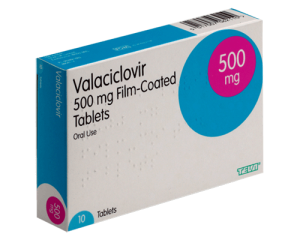Synphase Contraceptive Pills
- Safe & Discreet Available 24/7
- Fully inspected and regulated service
Synphase is a contraceptive pill used to prevent pregnancy occurring. It contains two hormones – a progestogen called Norethisterone and an oestrogen called Ethinylestradiol.
Synphase is known as a tri-phasic oral contraceptive meaning that there are three different types of pill within each pack with varying levels of hormones. Tri-phasic pills are designed to work more closely with your body’s natural menstrual cycle and can help reduce mid- cycle bleeding as opposed to some other pills. When taken correctly, it has a 99% effective rate.
How do you take Synphase
You should always take this medicine as prescribed by your doctor or pharmacist and consult with them if you are unsure.
A pack of Synphase contains the following different coloured tablets.:
- Seven blue ones
- Nine white ones
- Five more blue ones.
Each different coloured tablet contains different amounts of hormones that, when taken in the correct order, imitate the natural occurrence of your body’s hormones during a monthly cycle.
- Take one tablet every day, in the right order- Synphase can be taken with or without food
- Each blister strip has a row of bubbles marked with the days of the week
- When you take your firsttablet, press the bubble for the day of the week you have started taking the tablets, for example, if youtake your first tablet on a Tuesday, press the bubble marked ‘Tue’. This will help you to remember theday of the week you started the pack
- Each new pack after this will also start on the same day of the week
- You should take one tablet at a similar time each day
- Once you have completed the pack leave a 7- day break (when you will usually have a bleed).
What if I miss a pill?
If you miss a Synphase pill, it is important to take this is as soon as you remember. If you are 12 or more hours late in taking the pill, it may not be effective so you will need an additional contraceptive (such as condoms) for the next 7 days.
Please note that the pill does not protect against sexually transmitted infections (STIs) so you would require a condom to protect against this.
When you first start taking Synphase you may experience irregular menstrual cycles, or you may have occasions where you miss a period or have breakthrough bleeding.
Regular Health Checks
When taking oral contraception, you must check areas of your health such as blood pressure (as oral contraceptives can cause high blood pressure). You should visit your GP or nurse annually for this.
For women aged 25 and over, regular smear tests are advised to screen for cervical cancer. This is for all women, even those who do not take contraceptive medication. Visit your GP or nurse for a test.
As oral contraceptives do not protect against STIs, it is important to have regular checks and to use condoms if you have any concerns about STIs.
If you are new to taking Synphase or you are wanting to restart after a break or you are wanting to change to Synphase, please consult your GP for the best advice.
When not to take Synphase
You should not use Synphase if you have any of the conditions listed below- if you do have any of these conditions, you must tell your doctor as they will discuss other appropriate forms of contraception.
- Women who are aged 50 years or over
- Women who are breastfeeding
- Women who smoke and are over 35 years of age
- Women with a BMI (body mass index) of 39 or over
- Women who have had either cervical or breast cancer
- If you are allergic to norethisterone or ethinylestradiol, or any of the other ingredients
- If you have a family history of clotting problems
- If you have had blood clots in the legs, blood clots in veins, the lungs, the brain or elsewhere(coronary and cerebral thrombotic disorders)
- If you have had a heart attack or stroke, or have had angina
- If you have or have had high levels of fats in your blood (hyperlipidaemia) or other disorders ofbody fats
- If you have or have had cancer of the breast, cervix, vagina or womb
- If you have had any of the following during a previous pregnancy: pruritus (itching of thewhole body) or jaundice (yellowing of the skin or eyes), for which your doctor could not findthe cause; or pemphigoid gestationis (a rash previously known as herpes gestationis typicallywith blistering of the palms of the hands and the soles of the feet)
- If you have or have had severe chronic liver disease (liver tumours, Dubin-Johnson or Rotorsyndrome)
- If you have or have had vaginal bleeding (not a period), for which your doctor could not findthe cause
- If you have or have had bad migraines
- If you are pregnant or think you could be pregnant
- If you have hepatitis C and are taking the medicinal products containingombitasvir/paritaprevir/ritonavir and/or dasabuvir.
Click here for the patient information leaflet
Combined Oral Contraceptive
The combined pill is another term for the pill, with the combined pill containing two artificial versions of the female hormones oestrogen and progesterone which are produced naturally in the ovaries. The combined pill as a prevention of becoming pregnant is effective by 99%.
The recommended way to use the pill is to take one every day for 21 days then have a break for 7 days, during which time you should have a period. After 7 days you begin to take the pill again.
It is advised to take the pill at the same time every day to form a routine, otherwise there is a risk of pregnancy, particularly if you miss a pill or vomit or have severe diarrhoea.
Please note that some medicines can affect the efficiency of the pill so you should consult your doctor before taking any other tablets.
If you suffer from heavy or painful periods, PMS (premenstrual syndrome) or endometriosis the combined pill can be an effective medication to help ease your symptoms.
Please note that the pill does not protect against sexually transmitted infections (STIs) so you would require a condom to protect against this.
How the combined pill works
- It prevents the ovaries from releasing an egg each month (ovulation)
- It thickens the mucus in the neck of the womb, so it is harder for sperm to penetrate the womb and reach an egg
- It thins the lining of the womb, so there is less chance of a fertilised egg implanting into the womb and being able to grow
There are a variety of brands of pill- these are made up of three main types:
Monophasic 21-day pills
The most common type of pill which has the same amount of hormone in it. One pill is taken every day for 21 days and then a break of 7 days. Microgynon, Marvelon, Yasmin and Cilest are all examples of this type of pill.
Phasic 21-day pills
Phasic pills contain two to three sections of different coloured pills within a pack with each section containing a different level of hormones. One pill is taken every day for 21 days and then a break of 7 days. It is important that Phasic pills are taken in the right order. Logynon is an example of this type of pill.
Every day (ED) pills
With ED pills there are 21 active pills and 7 inactive (dummy) pills within each pack. The two types of pills have a different appearance with one pill taken every day for 28 days with no break between the packets. It is important that the everyday pills are taken in the right order. Microgynon ED is an example of this type of pill.
Please ensure that you follow the instructions that come with your packet. If you have any questions you should consult your GP, practice nurse or pharmacist.
What to do if you miss a pill through sickness
If you miss a pill due to being sick, you should use another form of contraception until you have taken the pill again for 7 days without vomiting
Who can use the combined pill
If there are medical restrictions why you cannot take the pill and you are a non-smoker, you can take the pill until the menopause. However, the pill is not the most suitable method of contraception, so you should consult your doctor, nurse or pharmacist to see if this is right for you.
You should not take the pill if you:
- are pregnant
- smoke and are 35 or older
- stopped smoking less than a year ago and are 35 or older
- are very overweight
- take certain medicines (ask your GP or a health professional at a contraception clinic about this)
You should also not take the pill if you have (or have had):
- thrombosis (a blood clot) in a vein, for example in your leg or lungs
- a stroke or any other disease that narrows the arteries
- anyone in your close family having a blood clot under the age of 45
- a heart abnormality or heart disease, including high blood pressure
- severe migraines, especially with aura (warning symptoms)
- breast cancer
- disease of the gallbladder or liver
- diabetes with complications or diabetes for the past 20 years
Risks of taking the combined pill
There are some risks associated with the combined contraceptive pill however these are minimal and for most women, the benefits the pill can provide outweigh the risks.
These risks include:
- Blood clots- The oestrogen in the pill may cause your blood to clot more readily. If a blood clot develops, it could cause deep vein thrombosis (clot in your leg) or pulmonary embolus (clot in your lung)
- stroke
- heart attack
The chances of developing a blood clot is very minimal but your doctor will check if you have certain factors that could put you at risk before they prescribe the pill.
The pill can still be taken with caution if you are identified with a risk factor but is unlikely to be prescribed if you have two or more risk factors
These include:
- being 35 years old or over
- being a smoker or having quit smoking in the past year
- being very overweight (in women with a BMI of 35 or over, the risks of using the pill usually outweigh the benefits)
- having migraines (you should not take the pill if you have severe or regular migraine attacks, especially if you get aura or a warning sign before an attack)
- having high blood pressure
- having had a blood clot or stroke in the past
- having a close relative who had a blood clot when they were younger than 45
- being immobile for a long time – for example, in a wheelchair or with a leg in plaster
- Cancer
There is ongoing research between the link to breast cancer and the pill, it is suggested that users of all types of hormonal contraception have a slightly higher chance of being diagnosed with breast cancer compared to those that don’t use them. However, 10 years after you stop taking the pill, your risk of breast cancer goes back to normal.
Research has also suggested a link between the pill and the risk of developing cervical cancer and a rare form of liver cancer. However, the pill does offer some protection against developing womb (endometrial) cancer, ovarian cancer and colon cancer.











